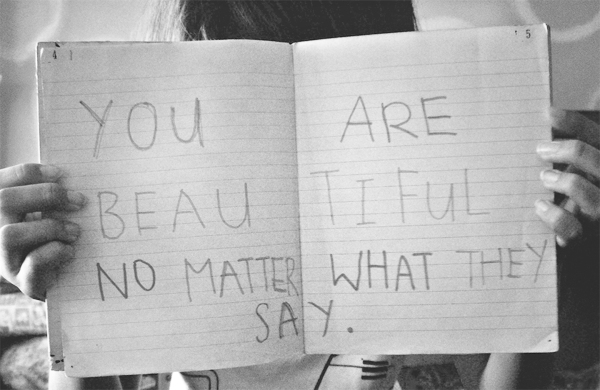 This week Kim Kardashian bore all for Paper magazine in a photo shoot with the goal to “break the internet.” Kim is most known for her rear end, as well as having celebrity status largely attained from her family’s fortune.
This week Kim Kardashian bore all for Paper magazine in a photo shoot with the goal to “break the internet.” Kim is most known for her rear end, as well as having celebrity status largely attained from her family’s fortune.
Kim, by exposing her rear, is playing into the current obsession with booty that is also notable in other aspects of pop culture such as Megan Trainor’s song “All About That Bass.” The problem with the current trend in pop culture and with Megan Trainor’s song is that they feed into a false sense of perfection of physical beauty in every person as well as a false equation of the beauty of person and aesthetic beauty.
Let’s face it, almost none of us are Greek Gods carved from marble exemplifying the ideas of human aesthetic perfection in Western culture. The problem is that a large number of music artists from Megan Trainor in “All About That Bass” to John Legend’s “You and I” have recently been promoting a message like that, well, maybe not exactly that.
It’s not that they say that you or I are perfect examples of physical perfection and beauty necessarily, but they send a message that you and I are perfectly beautiful the way we are while talking about beauty in reference to aesthetics of the human body.
When John Legend sings in “You and I,” the line “Guess you don’t know, that you’re beautiful” it is between the lines “you fix your make up, just so” and “try on every dress you own.”
This puts the context of beauty into the physical realm, when really what Legend is referring to is that she is beautiful regardless of how she looks because beauty is not defined by physical features, but inner character and values.
“They send a message that you and I are perfectly beautiful the way we are while talking about beauty in reference to aesthetics of the human body.”
Some people catch this subtle message about what beauty truly is, but the message isn’t clear. Especially when other singers and songwriters send messages that clearly aren’t of that nature but run along a similar theme.
“All About That Bass” is a song that heavily emphasizes having “all the junk in all the right places” and repeats the message that “If you got beauty, beauty, just raise ‘em up/’Cause every inch of you is perfect/From the bottom to the top” obviously talking about the physical body and its beauty.
So what’s the problem with a message telling everyone they’re physically beautiful? The problem with these songs can best be demonstrated by contrasting them with “Forest Whitaker” by Brother Ali which contains rhymes such as “To everyone out there, who’s a little different/I say damn a magazine, these are gods fingerprints/You can call me ugly but can’t take nothing from me/I am what I am doctor you ain’t gotta love me.”
The songs like “All About That Bass” and “You and I” emphasize a message that everyone is physically beautiful the way they are, which fails to recognize the simple fact that none of us are physical models of perfection. I for example have one eyelid that droops, small wrists, am skinny, and my teeth are a bit crooked.
All things I am somewhat self-conscious about. What sounds healthier; telling me I’m physically perfect the way I am and beautiful, or telling me that I’m not a picture of physical perfection but that doesn’t matter cause it’s my character that matters?
“Kim, by exposing her rear, is playing into the current obsession with body image that is also notable in other aspects of pop culture.”
The second one is obviously more in line with the reality of the world. Yeah my eye lid droops but who gives a damn. Of course physical beauty varies from culture to culture and overall it may be the case that beauty is completely socially constructed, so why don’t we just tear down that construct and tell everyone they’re perfect and beautiful the way are?
This sounds like a nice idea and solution to the problems and insecurities that arise from a media and society that obsess over the body, but it doesn’t fix the obsession with the body. Anxiety and insecurities aren’t going to be fixed this way, but can be helped by coming to realize that physical perfection isn’t everything.
I’m not harkening us back to the Middle Ages of rejection of the physical world and the body, but as a society we are currently far too engrossed with the body.
By saying that everyone is a perfect example of beauty the way they are, beauty in the aesthetic sense becomes relative and meaningless, and we miss what beauty is truly about.
You wouldn’t say that a vase that has divots, bumps, and is crooked is perfectly beautiful would you? You wouldn’t say all vases are equally beautiful would you? But a vase gains value not just by being nice to look at but for how it functions and its structural integrity.
Similarly, not every person is an example of perfect physical beauty, but people gain their true beauty from their character, values, actions, and how they treat others and this is what is important. Reality is.
-Matthew Glasier
